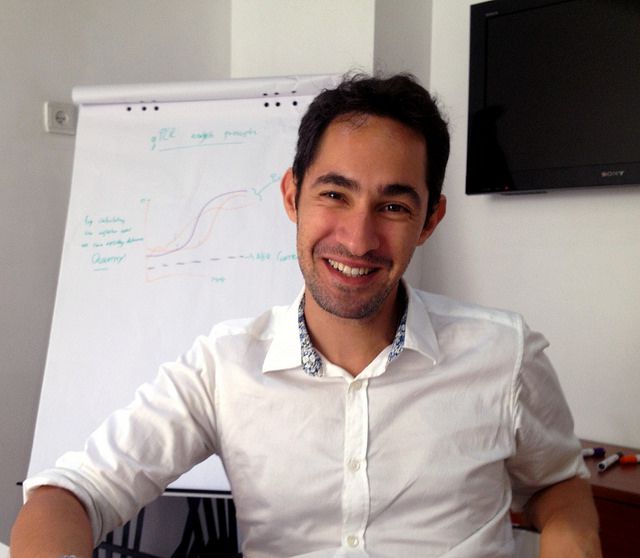 The company is participating in the largest-ever child-health study of diagnosis of illness . Image via Shutterstock.com. Imagine waking up one morning with a cough or a sinus headache. Should you go into the office? Instead of trying to get a doctor’s appointment to find out if you are contagious, you go to the nearest pharmacy for an instant test to determine what kind of virus, bacteria or fungus you may have. By Abigail Klein Leichman Israel21c
The company is participating in the largest-ever child-health study of diagnosis of illness . Image via Shutterstock.com. Imagine waking up one morning with a cough or a sinus headache. Should you go into the office? Instead of trying to get a doctor’s appointment to find out if you are contagious, you go to the nearest pharmacy for an instant test to determine what kind of virus, bacteria or fungus you may have. By Abigail Klein Leichman Israel21c
This scenario is not far from becoming reality, thanks to the Jerusalem-based subsidiary of Azure PCR. The company’s disruptive technology has streamlined the process of detecting, diagnosing and tracking infectious diseases.
“This is really important in terms of drug-resistant diseases,” says British-born CEO Aron Cohen, recalling how Muppets founder Jim Henson died in 1990, at age 53, from a drug-resistant bacterial infection before doctors had time to pinpoint the disease strain. “Had he been diagnosed right away, he might still be alive today.”
At this early stage, however, the company is not focusing on that future consumer application but on using its automatic DNA analysis technology in major global collaborations aimed at curbing the spread of viruses such as H1N1 or avian flu, in real time.
Global child health study: diagnosis of illness
Azure PCR is participating in the largest-ever child health study, the Johns Hopkins-based PERCH (Pneumonia Etiology Research for Child Health), bankrolled by the Bill & Melinda Gates Foundation.
This multi-country study of hospitalized pediatric patients with severe pneumonia intends to advance new lab techniques in order to better determine causes and risk factors, as well as guide the development of new vaccines and treatments.
The Israeli company’s role in this $260 million study is its unique capability for fast and automated data analysis.
Cohen tells ISRAEL21c that real-time PCR (polymerase chain reaction) is the most popular molecular diagnostic technique in use today, accounting for more than $2.8 billion in sales.
diagnosis of illness

CEO Aron Cohen: “We can provide standardized results without the need for skilled personnel.”
There are three steps to this process: extracting the DNA from the urine or blood sample, testing the DNA, and analyzing the results. The first two steps were automated before Azure PCR came on the scene.
Follow this link for the rest of the story: Israel21c
diagnosis of illness






